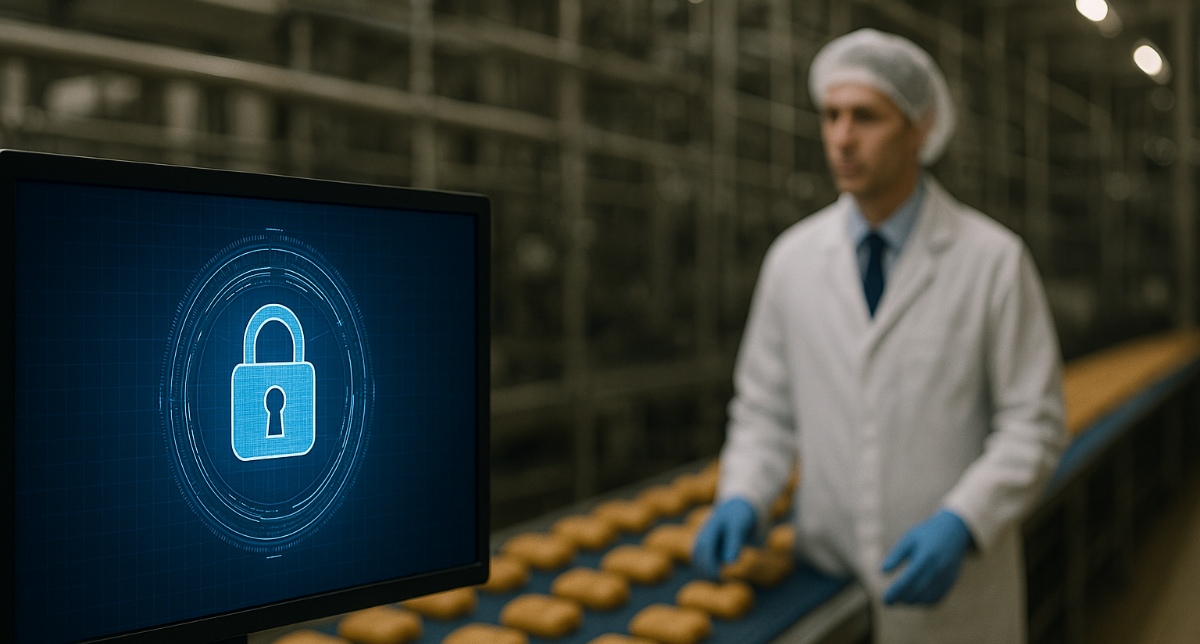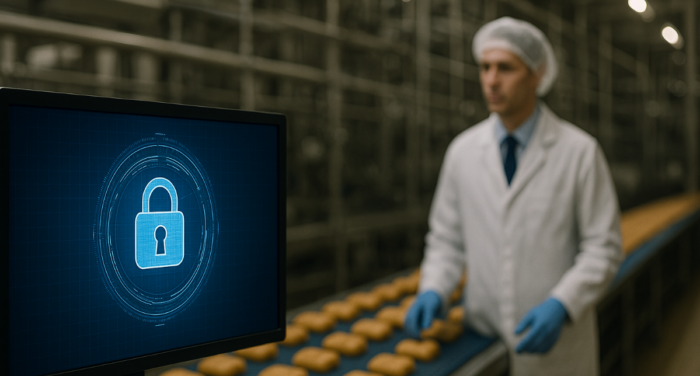The Intersection of Food Safety and Cybersecurity: Protecting Consumers and Manufacturers

The Intersection of Food Safety and Cybersecurity: Protecting Consumers and Manufacturers
In today’s fast-paced, highly automated food and beverage industry, maintaining food safety and uninterrupted production is not just a goal—it’s a necessity. With rising demands for efficiency, compliance, and consumer trust, the industry faces unique challenges that make cybersecurity an essential part of the equation. At Sekurinova, we understand that safeguarding food safety and production continuity requires a proactive approach, especially in an era where cyber threats are becoming more sophisticated and widespread.
Why Food Safety and Cybersecurity Go Hand in Hand
Food safety and cybersecurity may seem like unrelated topics, but they are deeply interconnected. Food manufacturers rely on automated systems like Industrial Control Systems (ICS) and Supervisory Control and Data Acquisition (SCADA) systems to streamline operations and maintain production efficiency. While these technologies help improve margins and meet regulatory standards, they are also vulnerable to cyber threats.
A cyber-attack on food manufacturing can have devastating consequences, including:
- Contamination Risks: Cyber threats targeting operational technology (OT) can compromise equipment settings, leading to unsafe food production.
- Production Delays: Attacks like ransomware can bring production lines to a standstill, causing financial losses and missed delivery deadlines.
- Regulatory Penalties: Failing to comply with Food Safety Modernization Act (FSMA) requirements due to a cybersecurity breach can result in hefty fines and legal issues.
- Reputational Damage: A single incident of compromised food safety can erode consumer trust and take years to rebuild.
The Need for Compliance with FSMA
The Food Safety Modernization Act (FSMA) sets strict guidelines for ensuring food safety, and cybersecurity plays a significant role in achieving compliance. As food production becomes more digitized, FSMA compliance now involves integrating cybersecurity measures to prevent contamination and maintain operational continuity.
At Sekurinova, we help food manufacturers meet FSMA requirements by implementing advanced cybersecurity solutions. This includes:
- Monitoring and Protection: Regularly monitoring systems for vulnerabilities and implementing protection measures to safeguard against cyber threats.
- Access Control: Ensuring only authorized personnel can access critical systems, minimizing the risk of accidental or intentional tampering.
- Incident Response Plans: Developing comprehensive plans to address and recover from cyber incidents, reducing downtime and ensuring quick restoration of operations.
Challenges in Cybersecurity for Food Manufacturing
Despite the critical role of cybersecurity, food manufacturers often face unique challenges, such as:
- Legacy Systems: Many facilities still use outdated systems that lack modern security features, making them more vulnerable to attacks.
- Limited Resources: Smaller manufacturers may struggle to allocate budgets and expertise for robust cybersecurity solutions.
- Increased Connectivity: The adoption of Internet of Things (IoT) devices and remote access increases the potential attack surface.
How Sekurinova Protects Food Manufacturers
At Sekurinova, we specialize in providing tailored cybersecurity solutions to the food and beverage industry. Our approach focuses on protecting both consumers and manufacturers by:
- Risk Assessments: Conducting regular evaluations to identify and address vulnerabilities in operational technology.
- Real-Time Monitoring: Implementing tools that detect and respond to potential cyber threats before they cause harm.
- System Upgrades: Helping manufacturers transition from legacy systems to modern, secure platforms.
- Employee Training: Educating teams on cybersecurity best practices to minimize human error and insider threats.
The Benefits of Cybersecurity for Food Safety
Investing in cybersecurity is not just about compliance; it’s about building a resilient food production system that protects consumers and strengthens business operations. By integrating cybersecurity with food safety measures, manufacturers can:
- Prevent Contamination: Ensure safe and high-quality food production, protecting public health.
- Minimize Downtime: Avoid costly production delays caused by cyber-attacks.
- Meet Regulatory Standards: Stay compliant with FSMA and other industry regulations.
- Enhance Consumer Trust: Build a reputation as a reliable and responsible food producer.
Conclusion
In an increasingly automated industry, the intersection of food safety and cybersecurity is more critical than ever. Cyber threats can disrupt production, compromise safety, and damage trust. At Sekurinova, we help food and beverage manufacturers bridge this gap by providing cybersecurity solutions that ensure compliance, prevent contamination, and maintain production continuity.
Protecting consumers and manufacturers is not just a responsibility—it’s a commitment to the future of food safety. Learn more about how Sekurinova can safeguard your operations at sekurinova.com.




Leave a Reply